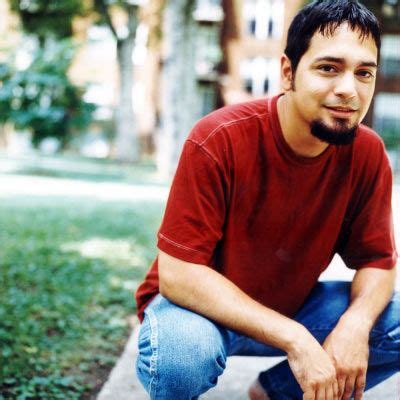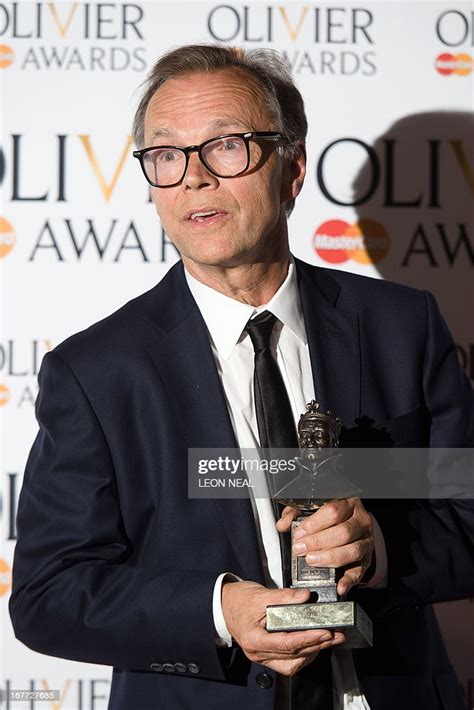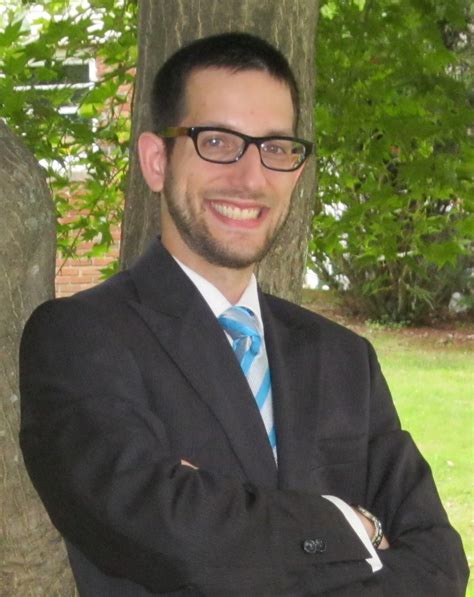A Quote by Maria Popova
Our chronic discomfort with ambiguity - which, ironically, is critical to both our creativity and the richness of our lives - leads us to lock down safe, comfortable, familiar interpretations, even if they are only partial representations of or fully disconnected from reality.
Related Quotes
A human encounter with holiness is devastating. It refuses to allow us to be impressed with the things of the world we’ve been chasing. It refuses to allow us to remain comfortable in our sin. It refuses to allow us to remain on the throne of our lives. And it leads us to a relationship with the only One who can perfectly love us, who can forgive all our sins, and who can make us into His likeness. Our encounter with His holiness is our devastation. And our devastation is our salvation.
I think the Bhagavad Gita is about both the forces of light and the forces of darkness that exist within our own self, within our own soul; that our deepest nature is one of ambiguity. We have evolutionary forces there - forces of creativity, and love, and compassion, and understanding. But we also have darkness inside us - the diabolical forces of separation, fear and delusion. And in most of our lives, there is a battle going on within ourselves.
In our daily lives we attend primarily to that which the senses are spelling out for us: to what the eyes perceive, to what the fingers touch. Reality to us is thinghood , consisting of substances that occupy space; even God is conceived by most of us as a thing. The result of our thinginess is our blindness to all reality that fails to identify itself as a thing, as a matter of fact.
Creativity is a challenge. It requires us to be fully human -- autonomous yet engaged, independent yet interdependent. Creativity bridges the conflict between our individualistic and our sociality. It celebrates the commonality of our species while simultaneously setting us apart as unique individuals.
Even though its common knowledge these days, it never ceases to amaze me that all the richness of our mental life - all our feelings, our emotions, our thoughts, our ambitions, our love life, our religious sentiments and even what each of us regards us his own intimate private self - is simply the activity of these little specks of jelly in your head, in your brain. There is nothing else.
Fear keeps us rooted in the past. Fear of the unknown, fear of abandonment, fear of rejection, fear of not having enough, fear of not being enough, fear of the future-all these fears and more keep us trapped, repeating the same old patterns and making the same choices over and over again. Fear prevents us from moving outside the comfort-or even the familiar discomfort-of what we know. It's nearly impossible to achieve our highest vision for our lives as long as we are being guided by our fears.
We like t'believe that everything's got an explanation...that our years on this earth make a safe kinda sense. We build ourselves up with explantions and rationalizations t'make us nice and comfortable--an' some people manage t'get through their lives without ever having to question any of it. But I think most of us have learned that...just when we least expect it...something comes droppin' down out o' the heavens...that blows all our comfortable ideas right t'pieces.
There's only one why. You only have one why, and your why is fully formed by the time you're 17, 18 or 19years old, maybe even earlier. The rest of your life are simply opportunities to either live in or out of balance and the career choices we make and the decisions we make in our lives either put us in balance with our why, which makes us happy, fulfilled and inspired. Or it puts us out of our why, which makes us frustrated, stressed out and sometimes we fail.
Most of us have become Ecozombies, desensitized, environmental deadheads. On average, society conditions us to spend over 95% of our time and 99.9% of our thinking disconnected from nature. Nature's extreme absence in our lives leaves us abandoned and wanting. We feel we never have enough. We greedily, destructively, consume and, can't stop. Nature's loss in our psyche produces a hurt, hungering, void within us that bullies us into our dilemmas.
We create our own reality because of our inner emotional - our subconscious - reality draws us into those situations from which we learn. We experience it as strange things happening to us (and) we meet the people in our lives that we need to learn from. And so we create these circumstances at a very deep metaphysical and subconscious level.
Our ego ideal is precious to us because it repairs a loss of our earlier childhood, the loss of our image of self as perfect and whole, the loss of a major portion of our infantile, limitless, ain't-I-wonderful narcissism which we had to give up in the face of compelling reality. Modified and reshaped into ethical goals and moral standards and a vision of what at our finest we might be, our dream of perfection lives on--our lost narcissism lives on--in our ego ideal.






































